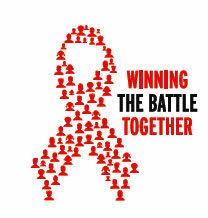I am HIV positive; will my baby catch the disease?
So, if the HIV positive mother who is on ARVs and has an undetectable viral load follows the doctors’ instructions of putting the child on ARVs soon after birth and exclusively breastfeeding for up to six months; the risk of such a child getting HIV from such a mother is very low.

Dear doctor, if an HIV positive mother who is on ARVs and her viral load is undetectable breastfeeds her baby, will the baby be infected with the disease?
Liz
Answer
Dear Liz, the main reason why people living with HIV transmit HIV to others including women transmitting the virus to their babies via the mother to child transmission route is because such people have high viral loads and therefore very infectious.
That is why all of us should embrace the "test and treat" programme of putting all people who test HIV positive on ARVs as soon as possible.
So, if the HIV positive mother who is on ARVs and has an undetectable viral load follows the doctors' instructions of putting the child on ARVs soon after birth and exclusively breastfeeding for up to six months; the risk of such a child getting HIV from such a mother is very low.
We have seen this work very well for parents who have done it, such that the number of children infected with HIV via the mother to child transmission route dropped from over 25,000 in 2011 to the current less than 4000 infections annually.
This shows we can eliminate HIV infections among babies if we put in practice the elimination of mother to child transmission of HIV strategies.
The question was answered by Dr. Stephen Watiti, an HIV/AIDS counsellor with Mildmay Uganda
***********
I had unprotected sex. What are the first signs of HIV infection?
Dear doctor, I recently had unprotected sex with someone whom I later found out was HIV positive.
I have not yet had the guts to go for an HIV test but wanted to know what the early signs of HIV infection are.
Secondly, how can some tell that he or she has the virus without doing the HIV test?
Jackson
Answer
Dear Jackson, acute HIV infection could present with flu-like symptoms like fever, skin rash, generalised body pains and sometimes swelling of the lymph glands; especially in the neck region.
There are, however, many other viral illnesses, which could present in a similar manner and many people would never recall having such signs and symptoms.
It is therefore important that we do not base a diagnosis on signs and symptoms only but to confirm it by doing an HIV test.
The other thing worthy noting is that during the acute phase of HIV infection, the antibody HIV test when done would be negative.
The only way you can detect the virus during this early stage of infection is by doing a more advanced test known as the DNA-PCR test.
Equally important and of public health significance is that during this period, which could last up to three months; the infected person usually has a very high viral load and is therefore highly infectious.
For such a person condoms are recommended if he or she must have sex. For women, getting pregnant during this period puts your unborn baby at higher risk of acquiring HIV through the mother to child route because of the high viral load or amount of HIV found in the blood.
Lastly, it is safer to assume that any person whose HIV status you do not know is HIV positive and to always take measures to protect yourself.
If exposed like you were, seeking to be put on post-exposure prophylaxis (PEP) by a health service provider trained to offer such a service as soon as possible would have been the best option.